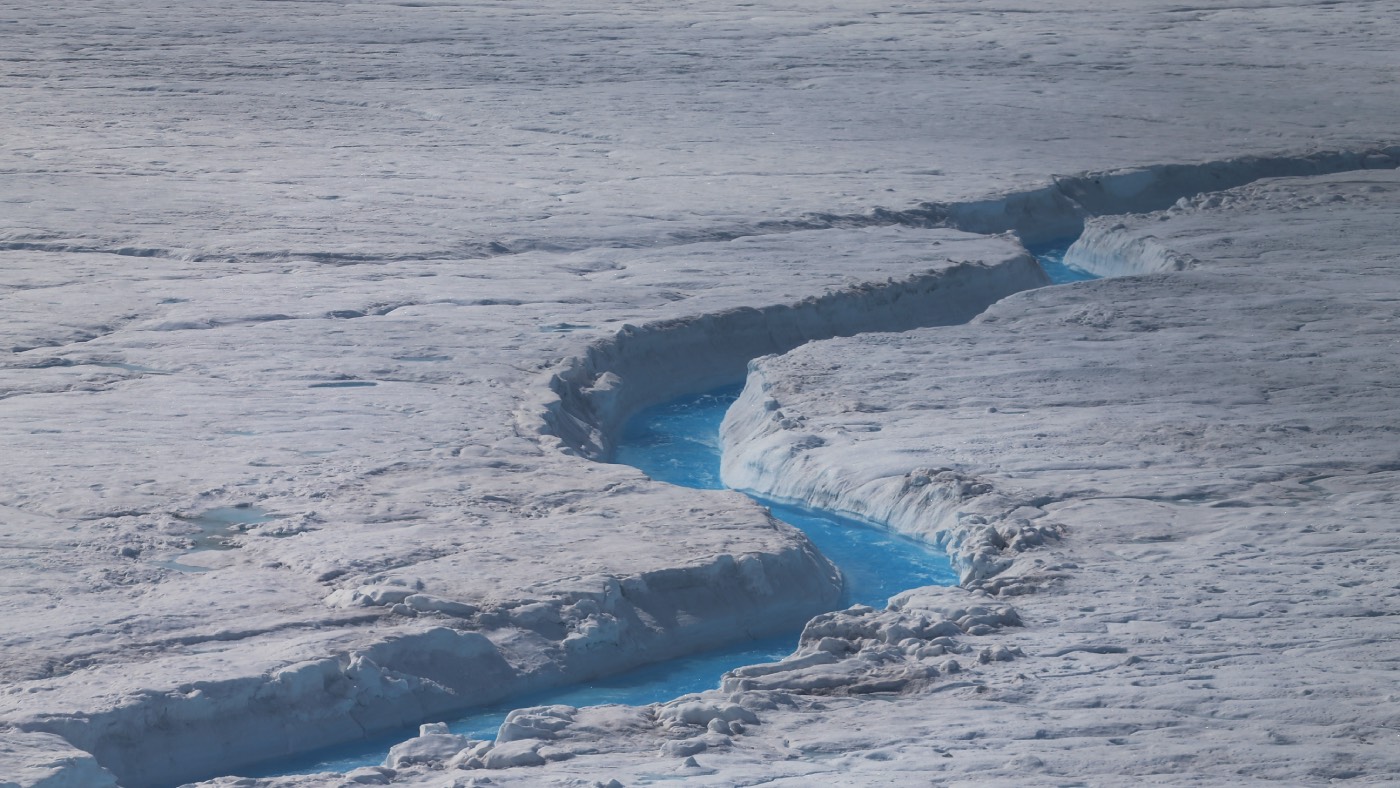Greenland’s ice sheet melting much faster than thought
Development threatens hundreds of millions of people with inundation

A free daily email with the biggest news stories of the day – and the best features from TheWeek.com
You are now subscribed
Your newsletter sign-up was successful
Greenland’s ice sheet is melting much faster than previously thought, with potentially catastrophic consequences.
New data suggests that ice is being lost from Greenland seven times faster than it was in the 1990s, and the scale and speed of ice loss is much higher than previously predicted.
The Guardian says the development threatens hundreds of millions of people with inundation and “brings some of the irreversible impacts of the climate emergency much closer”.
The Week
Escape your echo chamber. Get the facts behind the news, plus analysis from multiple perspectives.

Sign up for The Week's Free Newsletters
From our morning news briefing to a weekly Good News Newsletter, get the best of The Week delivered directly to your inbox.
From our morning news briefing to a weekly Good News Newsletter, get the best of The Week delivered directly to your inbox.
Sea level rises are likely to reach 67cm by 2100, about 7cm more than the Intergovernmental Panel on Climate Change has previously thought.
Some 400 million people will be put at risk of flooding every year, instead of the 360 million previously predicted, says the report.
The authors of the study have expressed alarm at the findings. Andrew Shepherd, professor of Earth observation at the University of Leeds, said these “are not unlikely events” and “will be devastating for coastal communities”.
The BBC explains that in an average year now, Greenland sheds about 250 billion tonnes of ice. However, this year was significantly warmer, so “the ice loss this year was more like 370 billion tonnes," said Dr Ruth Mottram, who is affiliated to the Danish Meteorological Institute.
A free daily email with the biggest news stories of the day – and the best features from TheWeek.com
Louise Sime, a climate scientist at the British Antarctic Survey, said: “This finding should be of huge concern for all those who will be affected by sea level rise.”
The Daily Mail says that sea level rise threatens cities “from Shanghai to London, to low-lying swathes of Florida or Bangladesh, and to entire nations such as the Maldives”.
Rachel Kennerley, of Friends of the Earth, said: “This latest research is yet more in an ever-growing pile of evidence which shows we need real action, not warm words.”
The latest data, collated by a group of 96 polar scientists from around the world, was published in Nature magazine.
–––––––––––––––––––––––––––––––For a round-up of the most important stories from around the world - and a concise, refreshing and balanced take on the week’s news agenda - try The Week magazine. Start your trial subscription today –––––––––––––––––––––––––––––––
-
 The environmental cost of GLP-1s
The environmental cost of GLP-1sThe explainer Producing the drugs is a dirty process
-
 Greenland’s capital becomes ground zero for the country’s diplomatic straits
Greenland’s capital becomes ground zero for the country’s diplomatic straitsIN THE SPOTLIGHT A flurry of new consular activity in Nuuk shows how important Greenland has become to Europeans’ anxiety about American imperialism
-
 ‘This is something that happens all too often’
‘This is something that happens all too often’Instant Opinion Opinion, comment and editorials of the day
-
 The plan to wall off the ‘Doomsday’ glacier
The plan to wall off the ‘Doomsday’ glacierUnder the Radar Massive barrier could ‘slow the rate of ice loss’ from Thwaites Glacier, whose total collapse would have devastating consequences
-
 Can the UK take any more rain?
Can the UK take any more rain?Today’s Big Question An Atlantic jet stream is ‘stuck’ over British skies, leading to ‘biblical’ downpours and more than 40 consecutive days of rain in some areas
-
 As temperatures rise, US incomes fall
As temperatures rise, US incomes fallUnder the radar Elevated temperatures are capable of affecting the entire economy
-
 The world is entering an ‘era of water bankruptcy’
The world is entering an ‘era of water bankruptcy’The explainer Water might soon be more valuable than gold
-
 Climate change could lead to a reptile ‘sexpocalypse’
Climate change could lead to a reptile ‘sexpocalypse’Under the radar The gender gap has hit the animal kingdom
-
 The former largest iceberg is turning blue. It’s a bad sign.
The former largest iceberg is turning blue. It’s a bad sign.Under the radar It is quickly melting away
-
 How drones detected a deadly threat to Arctic whales
How drones detected a deadly threat to Arctic whalesUnder the radar Monitoring the sea in the air
-
 ‘Jumping genes’: how polar bears are rewiring their DNA to survive the warming Arctic
‘Jumping genes’: how polar bears are rewiring their DNA to survive the warming ArcticUnder the radar The species is adapting to warmer temperatures